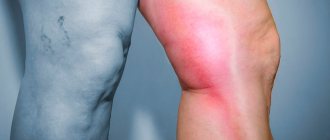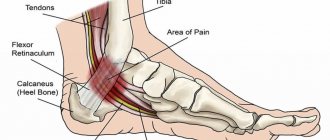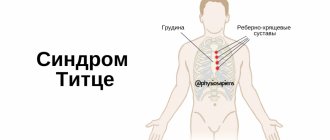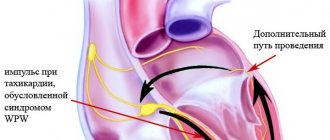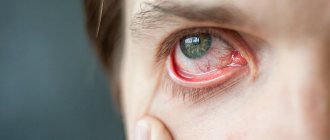How changes happen
Menopausal syndrome lasts up to several years; it is normally observed in women aged 45 to 69 years. The duration and time of manifestation depend on the individual characteristics of the organism and hereditary factors.
There are three main periods in the process:
- premenopause, characterized by a violation of the regularity of the cycle;
- menopause, its beginning – absence of menstruation for a year;
- postmenopause, the period from menopause and up to 10 years after.
All changes in the body are caused by hormonal transformations, which also cause concomitant menopausal syndrome in women.
Menopause - symptoms and treatment
Treatment of menopausal syndrome is usually required for moderate to severe cases. It is carried out in three directions: non-medicinal, medicinal and hormonal.
Non-drug treatment
, non-drug treatment is mainly used
- phytotherapy; [10]
- general strengthening gymnastics, massage, physical therapy - exercises to strengthen the pelvic floor muscles, maintain joint mobility and elasticity of ligaments, slow down the loss of bone and muscle mass;
- physiotherapeutic procedures - galvanization, electroanalgesia, electrophoresis with novocaine on the collar area and other techniques;
- acupuncture;
- sanatorium-resort treatment - climatotherapy, balneotherapy, hydrotherapy.
To normalize the psycho-emotional state, psychotherapeutic techniques and relaxation methods will be useful [5].
Nutrition and diet
It is recommended to limit the consumption of animal fats, simple carbohydrates, table salt and caffeine-containing products, as well as enrich the diet with fiber, vegetable oils, and dairy products.
Non-hormonal drugs
At the second stage, non-hormonal medications :
- vitamin complexes containing vitamins A, C, E, D and B vitamins;
- herbal medicines containing substances similar to female sex hormones;
- sedatives, neuroleptics, tranquilizers;
- symptomatic remedies;
- drugs for the treatment of concomitant diseases.
Hormonal treatment
The third stage is hormonal treatment . Basic principles of hormone replacement therapy:
- only analogues of natural female hormones are used;
- low doses of estrogens are used in combination with progestogens (if the uterus is removed, isolated use of estrogens is possible - monotherapy);
- The duration of treatment with hormones is at least 5-7 years.
Various hormonal drugs are designed for different stages of menopause:
- during early menopause in relatively young women, drugs simulate a menstrual-like reaction;
- for women of the older age group who do not want to resume menstrual flow, medications that contain a much lower dosage of hormones are indicated;
- for women who have been in menopause for at least one and a half years, medications are prescribed that are aimed at preventing osteoporosis, cardiovascular diseases, inflammatory processes of the urogenital tract and mitigating vasomotor symptoms.
Methods of administering hormones can be different: oral (orally in the form of tablets), vaginal, intrauterine, external (in the form of patches or gels) and injection.[2][3]
In each case, an individual selection of the drug by the doctor is necessary, taking into account the individual characteristics of the patient and contraindications.
Combating vaginal dryness during menopause
At any stage of menopause, it is possible to use products that improve the condition of the external genitalia and vaginal mucosa. They are indicated for women who have pronounced signs of atrophic changes in the skin and mucous membrane of the genital organs, accompanied by itching, a feeling of dryness, significant difficulties during sexual intercourse (up to their impossibility) and urinary incontinence (in the early stages). We are talking about the local use of hyaluronic acid preparations, which moisturizes the skin and mucous membranes to the deep layers, increases firmness and elasticity, and improves appearance.
Also in recent years, so-called laser vulvorejuvenation has been used - exposure to a special type of laser irradiation, as a result of which trophic processes in the skin and mucous membranes are improved, and the feeling of dryness and discomfort is eliminated.
Treatment of hot flashes during menopause
In addition to hormonal medications prescribed by your doctor, the following may help with hot flashes:
- avoid provoking factors, such as bright light or emotional overload;
- reduce the external temperature using an air conditioner or fan;
- choose clothes that can be easily removed if necessary [11].
Treatment of hypertension during menopause
Treatment of hypertension occurs together with a cardiologist, who prescribes appropriate medications.
Therapy for osteoporosis during menopause
All postmenopausal women are recommended to be screened for osteoporosis. Patients are managed together with an endocrinologist.
Quitting smoking
One of the important components of successfully combating the negative manifestations of menopausal syndrome is a complete cessation of smoking .[4] In women who smoke, menopausal syndrome often occurs especially severely at an earlier age, and hormone therapy while smoking can lead to severe side effects.
Pathogenesis
Symptoms are distinguished depending on the stage of restructuring of the body. In the early period, the following factors are present:
- mood changes;
- increased aggressiveness or irritability;
- increased sweating;
- changes in appetite and taste preferences;
- tides;
- exacerbation of headaches or dizziness;
- frequent changes in blood pressure;
- heartbeat.
The middle period is characterized by the following features:
- anxiety and depression;
- chronic fatigue and feeling of weakness;
- dry skin;
- deficiency of vaginal mucous secretions;
- decreased libido;
- cystalgia;
- impaired concentration.
In the later stages, in addition to the sexual sphere, hormonal changes affect other body systems. The third period is accompanied by the following symptoms:
- increased blood pressure;
- manifestation of atherosclerosis and osteoporosis;
- manifestation of diseases of muscles and joints;
- visual and hearing impairment;
- exacerbation of type 2 diabetes mellitus.
Increasing stress resistance
The fact that our time is “a time of stress and passion” was known fifty years ago. The speed of life has not decreased since then, we are always running somewhere, doing a hundred things at the same time and driving ourselves into stress traps.
To fight it, it is worth adopting several techniques.
- Don't think about the white monkey
. This often seems impossible, but try not to dwell on your difficulties and problems and get distracted. For a book, a movie, chatting with friends.
There is an effective way: set aside an hour a day specifically to think about the problem that worries you. And make sure that during this hour you think only about her. But the rest of the time, drive her away. After some time, you will learn to “turn on” and “turn off” thoughts about it - then you can begin to reduce the time allotted for thinking about the problem. And, of course, try to solve problems as they arise, and not think about them for days.
- Let off some steam
. You can harbor resentment within yourself, but it will not increase your resistance to stress and certainly will not help you get rid of it. Beat a pillow, break a cup (in Japan they even sell special cheap dinner sets designed for breaking in the heat of family quarrels), watch a comedy or, conversely, a thriller. In general, anything that will give vent to anger, resentment, irritation.
- Rest. Get plenty of sleep
. On vacation, don’t sit at home or in the country, change your surroundings. If it is not possible to go to the sea, a lake in the forest or a walk around your hometown in good friendly company will do.
- Take yourself on a date once a week
– wherever you want: to the cinema, to a concert, to the theater, or just for a walk. Only two things are important: that no one bothers you, and that you have fun and interesting.
- Write
. Writing down everything that worries you is also a kind of meditation. The written down problem acquires boundaries, a beginning and an end, and ceases to be a terrible obstacle in your path.
Causes of pathology
Treatment of menopause in women is carried out taking into account the cause of the development of pathological conditions. The severity of menopausal syndrome is determined by the following factors:
- heredity;
- past illnesses;
- stress;
- Lifestyle.
The pathological condition has three stages: mild, moderate and severe. The condition is segmented by quality of life, changes in well-being and the presence of hot flashes.
Forming correct eating behavior
Any diet, despite their big names, does much more harm than good - most of them cannot provide balanced nutrition. But we don’t know how to listen to the true needs of the body - because the numbers on the scales are often more important to us than how we feel. Conclusion: not diets and breakdowns, but proper nutrition, which, again, is best taught from childhood.
By the way, the diet must include not only “chicken breast and lettuce”, which people love to write about on weight loss forums, but also – surprise! – fats, both vegetable and animal. Of course, no one can cancel the need to monitor the calorie content of food consumed.
- Eat often, but little by little. Remember how little children are fed? A little bit every 3 hours. Over the years, the body's needs in this regard do not change.
Don't forget about fermented milk products. Cottage cheese and kefir are calcium, and calcium is the prevention of osteoporosis and joint diseases.
- Fats should definitely be included in your diet. Nuts, vegetable oil, fatty fish - not much, but certainly and preferably every day.
- Forget about mayonnaise, ketchup and sweet soda. Choose simple foods—that is, those that are made from understandable ingredients in an understandable way. If you really want to dress your salad with mayonnaise, make your own mayonnaise. Remember that you have every right to know what you eat and why.
What examinations are needed
Treatment of menopausal syndrome in a woman involves monitoring her health and correcting pathological conditions. A consultation with a gynecologist involves taking a medical history, recording complaints and examining the patient.
You may also need:
- consultation with an endocrinologist;
- consultation with a cardiologist;
- mammography;
- general blood analysis;
- blood biochemistry;
- smear cytology;
- densitometry;
- Ultrasound of the pelvic organs;
- hemostasiogram.
Constant health monitoring allows you to adequately respond to changes in hormonal levels and alleviate your general condition.
Let's move
Only the lazy do not say or write that movement is life. But there is one secret: not every movement, but only the one that gives you pleasure.
However, there is a pitfall here. So you started running or dancing, or riding, or going to the gym. Your muscles ache out of habit, it’s hard for you and you don’t want to go to the second lesson at all.
Try working out for three weeks. Tell yourself: I’ve only been lifting my abs in the morning for three weeks. Only for three weeks have I gotten up earlier and gone for a run in the park. I only buy a gym membership for three weeks. And after three weeks, look: do you still have to force yourself to exercise? If you force it, it means it’s not yours. Look for something else. If dancing doesn't work, try yoga. If you don’t like running, buy a pool membership. For three weeks, of course. Sooner or later you will find what you have dreamed of all your life. Perhaps body ballet is your middle name.
What is the reason? The fact is that in 21 days a new habit is instilled, the body masters and assimilates it. This is no longer a new action for you, and you can easily determine with a cool head whether you like it or not.
How to eat properly to prevent hot flashes?
Nutrition plays an important role in preventing hot flashes. Sometimes women, without realizing it, provoke this unpleasant symptom by eating spicy and very hot foods, spices, and coffee. Switching to a low-fat diet will not only help reduce the frequency and intensity of hot flashes, but also improve your overall health.
Here are some specific dietary recommendations during menopause:
- It is better to replace black coffee with green tea.
- All drinks, including tea, should be drunk warm, not hot. The same goes for any dish - forget about scalding kebabs and soups if you don’t want to suffer from hot flashes later.
- In the daily diet, the share of meat food should be no more than 20%. You can replace meat protein with soy. By the way, Japanese women, whose diet contains a lot of soy rich in phytoestrogens, suffer from hot flashes much less often than women from those regions where the menu traditionally has a lot of meat.
- Add vitamin E-rich foods to your menu - whole grains, nuts, wheat germ, etc. If you find it difficult to switch to wheatgrass or eat nuts, you can choose a suitable vitamin and mineral complex with sufficient vitamin E content.
When does menopause begin to develop?
For women living in different countries, the average time for the onset of menopause may differ. Belarusian women most often experience menopause when they reach the age of about 45-50 years.
What symptoms suggest that menopause is approaching? ● Fatigue. ● Increased nervousness. ● Tearfulness, irritability, emotional instability. ● The vast majority of women experience menstrual irregularities.
Often these symptoms can be confused with emotional burnout and fatigue. However, if the symptoms of fatigue and emotional burnout are associated with external factors and are eliminated by calmness, rest, and a change of environment, then the symptoms of menopause are caused by a woman’s hormonal imbalance. When the ovaries begin to fail, they reduce production of the hormones estrogen and progesterone.
It is the lack of hormones that provokes the occurrence of such nervous conditions in a woman.
Hormones play an extremely important role in a woman’s body. Estrogen is responsible for a woman’s appearance - the condition of her skin, hair, nails, emotional stability and colorful life. The second hormone, progesterone, is very important for pregnancy and gestation. It is he who gives pregnant women that very calmness and tranquility. The lack of production of these hormones can greatly ruin a woman’s life.
“Yes, I’m getting old,” says Sharon Stone, who is already 60 years old. ─ But it seems to me that in the art of aging you can allow yourself some “imperfections”; they add sensuality and sexuality to the image. I’m not against plastic surgery, because it’s much worse to live with complexes caused by flaws in appearance, but completely remaking yourself just like that is not normal.”
Over time, when less and less hormones begin to be produced, unpleasant symptoms of menopause are added, such as: ● Hot flashes and fever occur. The woman feels an increase in body temperature, her face becomes covered with red spots and burns. This condition can recur up to several times a day. ● Heavy sweating. Most often during high tides. ● Headaches. ● Dryness, itching, burning, discomfort in the genital area. ● Nervous states arise - you want to cry, feel sorry for yourself, life seems gray and gloomy. Sometimes depression occurs. ● Sleep disturbance. Sleep rhythms become disrupted, women find it more difficult to fall asleep, they often wake up at night, and have difficulty getting out of bed in the morning. ● Osteoporosis may occur. During menopause, calcium is intensively washed out of a woman’s body, her bones become fragile and porous. ● External changes occur - the skin becomes thin and dry, noticeable wrinkles appear. ● Sexual life does not bring the same pleasure. Sexual intercourse becomes painful and causes discomfort. A woman begins to avoid intimate relationships, and her relationship with her partner worsens.
The period between the appearance of the “first signs” and more serious unpleasant symptoms is quite long. It can be up to five years.
How to recognize menopausal syndrome
During menopause, estrogen production decreases; not all body systems have time to adapt to the upcoming changes, so typical signs of this period appear:
- sudden headaches, pressure changes, dizziness;
- menstruation becomes irregular, the cycle is disrupted without subsequent recovery;
- sexual desire disappears;
- hot flashes due to hormonal imbalance are accompanied by a feeling of extraordinary warmth permeating the body. Most often they occur at night and last from 30 seconds to 5 minutes; red spots may appear on the skin;
- there are disruptions in metabolism;
- weight gain, sagging skin, loss of muscle mass;
- frequent unpredictable mood swings, depression, insomnia;
- dryness and itching in the vagina;
- bladder weakness;
- the development of hypertension and other cardiovascular pathologies is possible, since the amount of hormones that help blood vessels remain elastic has decreased significantly.
A study of 12,000 postmenopausal women found that every year they lived with functioning ovaries reduced their risk of developing coronary artery disease and reduced their risk of death by 2%.
How to prepare for menopause
Every woman should understand her body and know its basic physiological characteristics. Thanks to this, there is a chance to change the attitude towards menopausal syndrome and perceive it as an inevitable process. And the following will help you prepare for it:
- Undergoing regular diagnostics (starting at age 37), which includes hormonal blood tests and ultrasound examination of the ovaries. follicle-stimulating hormone (FSH) levels is a signal of the onset of menopause.
- Sports activities aimed at strengthening the muscles in the pelvic area and toning the abdominal muscles. Exercise, massage, dancing, walking and fitness - all this will help achieve the desired result.
- Water procedures in the form of a contrast shower and swimming help train the body's thermoregulation system, and also rejuvenate the heart and blood vessels.
- A balanced diet with limited fat intake. Due to the slowdown in metabolic processes during menopause, nutrients are less absorbed, which can lead to excess weight. Avoid drinking high-calorie alcohol. Give preference to healthier cooking methods: replace fried potatoes with boiled ones. Find an alternative to a sweet chocolate bar in the form of fresh fruit or juice. Don't forget to replenish your diet with calcium, eat fish, dairy products and meat.
- Anti-stress, ability to relax (auto-training, yoga).
- Deep abdominal breathing, with which you can really fight hot flashes. If you do a diaphragmatic exercise twice a day for 15 minutes (breathe at a rate of 6-7 inhalations and exhalations/min), the intensity of the pain will decrease.
- The use of herbal remedies based on phytoestrogens prescribed by a doctor. Even in ancient times, infusions of chamomile, oregano, St. John's wort and calamus helped women reduce and even eliminate the symptoms of menopause.
Scientists in the field of herbal medicine conducted a survey of 248 women aged 45-60 years, who refuted the clinical effectiveness of phytoestrogens in regulating the level of female hormones. Those who regularly consumed soy to combat the symptoms of menopause often suffered from constipation and severe hot flashes.
What to do if menopause occurs?
Contact a gynecologist-endocrinologist. Such a doctor will accurately determine whether your condition is really related to the onset of menopause and, if so, will select an individual treatment that is suitable for you.
Hormone replacement therapy (HRT) is considered the most effective way to eliminate the unpleasant manifestations of menopause. Hormone therapy can compensate for the lack of sex hormones and greatly improve a woman’s quality of life. HRT can quickly eliminate the manifestations of menopause and remove its main symptoms. Modern means of hormonal therapy, when taken for a long time, do an excellent job of their main task. Properly selected hormonal drugs cause virtually no side effects. The only thing is that all hormonal drugs have some contraindications for use. These are oncology, mastopathy, stroke or heart attack in the past, diabetes mellitus and some others.
The doctor prescribes hormone replacement therapy drugs only in certain cases - when the patient really needs them.
Most often, an experienced gynecologist-endocrinologist tries to make do with alternative methods: herbal medicine, homeopathy. Physical therapy and acupuncture are prescribed, a healthy lifestyle, vivid impressions, and positive emotions are recommended. From this point of view, relaxing SPA treatments and travel are good. A change of environment in itself has a very good effect on a woman’s emotional state and allows her to more easily endure the unpleasant symptoms of menopause.
Prevention and general recommendations
The following rules will help you adequately cope with the natural aging of the body:
- It is necessary to stop smoking and drinking alcohol.
- It is important to lead an active lifestyle: walking, swimming, cycling, skiing.
- You can't give up your intimate life. Hormonal medications help cope with dryness and decreased libido.
- You need to adjust your diet and take vitamin complexes.
- You should regularly undergo preventive examinations and examinations.



